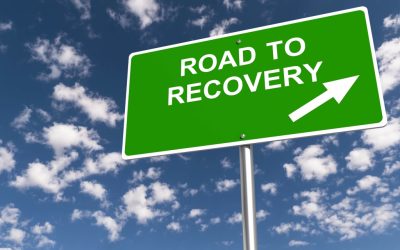The initial use of alcohol may require emotional readiness and cognitive choice, but subsequent use becomes habitual, reinforcing their newfound sense of power and control. Ultimately, alcohol not only offers a temporary escape from their insecurities but also creates a structured environment that gives their chaotic lives a semblance of meaning and direction. By recognizing the signs of narcissistic alcoholism and setting boundaries, individuals can protect themselves from emotional abuse and seek the necessary support for healing and recovery. This form of abuse often involves invalidating the victim’s experiences to maintain control and power.
- Losing their physical abilities, retiring, and facing a loss of purpose can lead to increased challenges in their relationships with others.
- Financial control is another common tactic, using money as a means to maintain power in the relationship.
- They are also vulnerable to schemes that promise to restore their youthful appearance or put them back on top in their professional realm.
- By targeting faulty thought patterns and behaviors, CBT helps individuals develop healthier coping mechanisms.
Navigating Covert Narcissist Dynamics in Couples Therapy

But under alcohol, she or he allow, allows, allow themselves to behave this way. In other words, 60 percent of people who go through rehab start to drink again within one year. Alcoholism is also should be distinguished from problem drinking and binge drinking. But prior to that concentration, even the concentration is lower, short-term memory is affected and there are memory gaps. This is why, again, many encounters with alcohol end up in casual sex with partners, which the next morning we find to be very, very unattractive physically.
The Intersection of Narcissism and Alcoholism
- It is typical for people to display occasional narcissistic traits, but a pattern of narcissism could be part of narcissistic personality disorder (NPD), a mental health condition.
- Substance abuse disorders like AUD are characterized by mental and physical addiction.
- Narcissism and alcoholism are disorders that are separately difficult — but combined may be profoundly challenging.
- Below, we’ll dive into just how strong the link between narcissism and alcoholism is, the similarities and differences of these disorders, and what to do if you or someone you love shares these traits.
- Narcissism is a complicated personality disorder that involves the construction of a false self to replace what the narcissist truly believes to be a worthless true self.
Clinical narcissism is named after Narcissus from Greek mythology. In the legends, Narcissus, the son of a god, fell in love with his own reflection and died pining for the “perfection” he saw within that reflection. Generally, people grow out of overt narcissistic behaviors when they reach puberty. However, narcissistic traits do not inherently indicate the presence of a mental health disorder.

Condition Spotlight
So, how to stop the relationship between alcoholism and narcissism from gaining momentum? Preventing the development and escalation of narcissistic personality disorder (NPD) and alcohol use disorder (AUD) involves a combination of early intervention, education, and healthy coping strategies. By adopting these measures, you can reduce the risk of these conditions and improve their overall well-being.
They may also struggle with feelings of entitlement and have difficulty taking responsibility for their actions. As a result of self-centeredness and denial, alcoholics can behave in manipulative ways. Like narcissists, they may threaten harm to themselves or others if they don’t get what they want. They may pretend to be nice for a short while to get other people to leave them alone. Even if their behaviors hurt others, alcoholics do what they feel Sobriety they need to continue drinking.
Is There a Link Between Narcissism and Alcoholism?
Narcissistic injury—a highly reactive sense of shame or ‘narcissistic wound’—is another significant issue. Individuals might use alcohol to numb these feelings of vulnerability. Narcissists frequently turn to alcohol as a coping mechanism for their underlying insecurities and emotional turmoil. This self-medication often exacerbates their narcissistic tendencies, making them increasingly demanding, arrogant, and difficult to handle. Alcohol diminishes their ability to regulate emotions and behaviors, intensifying their need for control and admiration.
Narcissistic personality disorder (NPD) and alcohol use disorder (AUD) are closely linked and can occur together as a dual diagnosis. NPD increases the risk of alcohol misuse as a means to escape difficult emotions. While diagnosis and treatment can be challenging, studies have shown that the successful treatment of a mental illness can lead to alcohol recovery in two out of every three cases. Narcissistic personality disorder (NPD) and alcohol use disorder (AUD) are closely linked.
If you think you’re misusing alcohol, or if you think you have NPD, reach out to a mental health professional. Everybody can benefit from speaking with a therapist, regardless of whether they covert narcissist alcoholic fit the criteria for a mental health condition. If alcohol misuse begins to impact your life, health, or safety, you might have AUD.
